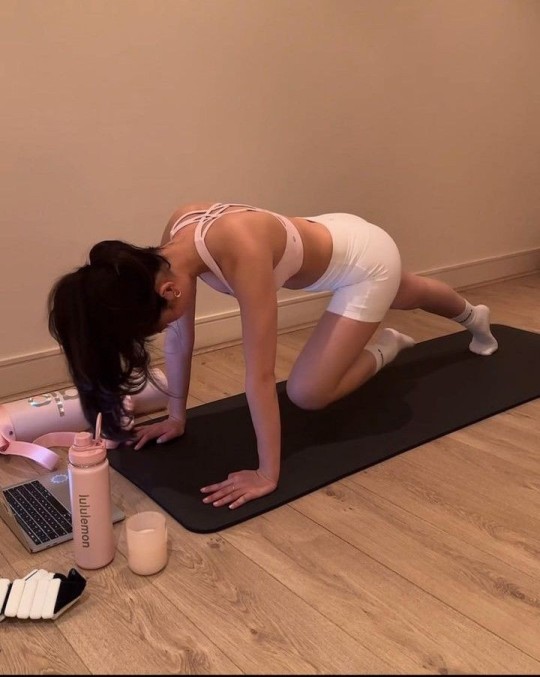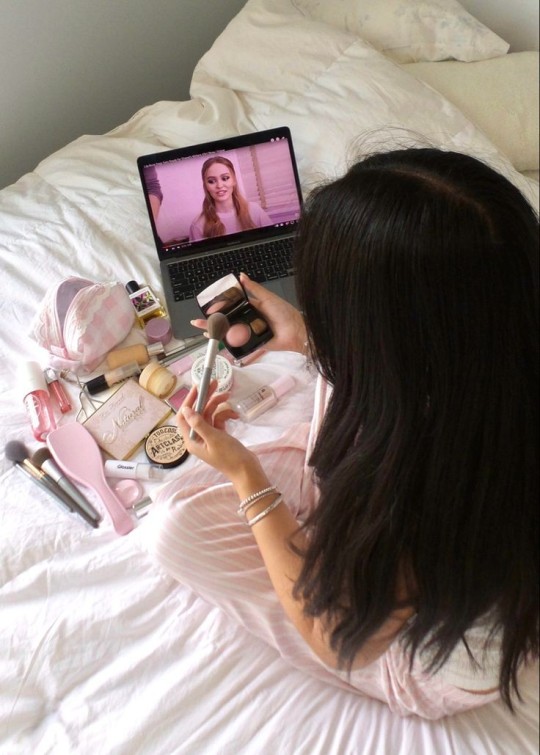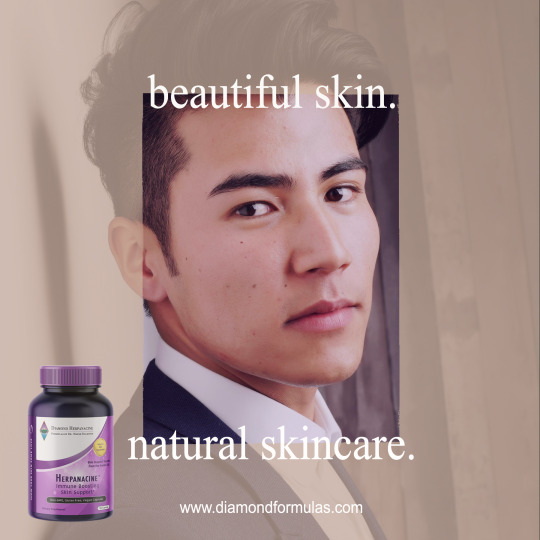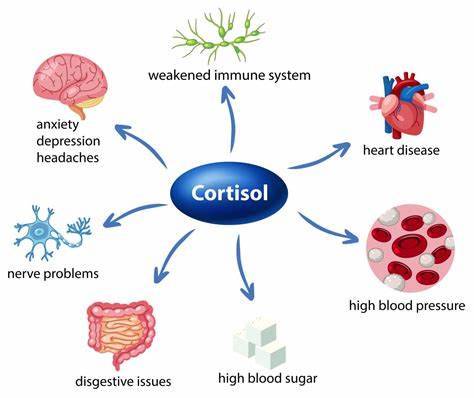#Balanced diet and stress relief
Explore tagged Tumblr posts
Text
#Stress management through diet#Foods to reduce stress#Nutrition for mental health#Balanced diet and stress relief#Stress-reducing nutrients#Mindful eating benefits#Diet tips for anxiety#Healthy eating habits#Stress-relieving foods list#Best dietitian in Noida
0 notes
Text
Distance Education in Nutrition
Distance Education in Nutrition Introduction The multidisciplinary field of nutrition and dietetics is concerned with the science of food, how it affects human health, and how to create dietary programs that will improve overall health and manage a range of medical disorders. You will investigate the complex interrelationships between food, nutrition, and health as a Nutrition and Dietetics…

View On WordPress
#DigitalLearning#DistanceEducation#DistanceLearningOptions#E-Learning#general wellness stress relief#general wellness stress relief relaxing Himalaya ashvagandha#Healthy Living Wellness Nutrition Exercise Mental Health Balanced Diet Fitness SelfCare WellBeing Lifestyle Choices Stress Manage#HealthyLiving Wellness Nutrition Exercise MentalHealth BalancedDiet Fitness SelfCare WellBeing LifestyleChoices StressManagement#NutritionCertification#NutritionPrograms#OnlineDieteticsEducation#OnlineNutritionCourses#RemoteLearning#VirtualNutritionDegrees#general wellness
0 notes
Text
healthy habits for straight a's
healthy habits play a crucial role in academic success. here’s a detailed explanation of how they can help you get straight a’s, along with some examples:
1. balanced diet
a nutritious diet fuels your brain and body, improving cognitive functions like memory, concentration, and problem-solving skills. for example, eating a breakfast rich in whole grains, fruits, and proteins can enhance your focus and energy levels throughout the day.
2. regular exercise
physical activity increases blood flow to the brain, which can boost your mood and cognitive abilities. exercise also helps reduce stress and anxiety, which can negatively impact your academic performance. for instance, a daily 30-minute walk or a quick workout session can make a significant difference.
3. adequate sleep
sleep is essential for memory consolidation and overall brain function. lack of sleep can lead to poor concentration, reduced problem-solving skills, and lower academic performance. aim for 7-9 hours of sleep each night to ensure your brain is well-rested and ready to learn.
4. hydration
staying hydrated is vital for maintaining cognitive functions. dehydration can lead to fatigue, headaches, and difficulty concentrating. make sure to drink plenty of water throughout the day to keep your brain functioning optimally.
5. stress management
chronic stress can impair your ability to learn and remember information. practicing stress management techniques like mindfulness, meditation, or deep breathing exercises can help you stay calm and focused. for example, taking a few minutes each day to meditate can reduce stress and improve your overall well-being.
6. healthy social interactions
positive social interactions can boost your mood and provide emotional support, which is important for academic success. engaging in group study sessions or discussing topics with friends can enhance your understanding and retention of the material.
examples of healthy habits:
meal planning: prepare balanced meals and snacks ahead of time to ensure you’re eating nutritious foods throughout the week.
exercise routine: incorporate physical activities you enjoy, like dancing, swimming, or playing a sport, into your daily routine.
sleep schedule: establish a consistent bedtime routine to improve your sleep quality.
hydration reminders: set reminders on your phone to drink water regularly.
stress relief activities: find activities that help you relax, such as reading, listening to music, or spending time in nature.
by integrating these healthy habits into your daily life, you’ll create a strong foundation for academic success and overall well-being.
#nenelonomh#it girl#it girl aesthetic#it girl energy#it girl mentality#becoming that girl#becoming her#that girl#student#productivity#study blog#quote#vanilla girl#pinterest girl#from pinterest#pinterest aesthetic#wonyoung#wonyoungism#self care#self improvement#self love#self healing#studying#chaotic academia#wellness#beauty and wellness
324 notes
·
View notes
Text
Your ultimate guide to glowing up physically and mentally in 2024.



This is a guide to glowing up physically and mentally in 2024, including skincare tips, hair care, mental health, vision boards, journaling, and creating new habits to achieve your goals.
Physical Fitness:
Incorporate a mix of cardio, strength training, and flexibility exercises into your routine.
Focus on a balanced diet with plenty of fruits, vegetables, lean proteins, and whole grains.
Stay hydrated by drinking an adequate amount of water daily.
Skincare Routine:
Develop a consistent skincare routine with cleansing, moisturizing, and sun protection.
Consider adding products with ingredients like retinol and vitamin C for anti-aging benefits.
Hair Care:
Maintain regular haircuts and consider trying new hairstyles.
Use quality hair products suitable for your hair type to keep it healthy and shiny.
Fashion and Style:
Update your wardrobe with pieces that make you feel confident and comfortable.
Experiment with different styles to find what suits your personality and body type.
Mindfulness and Mental Well-being:
Practice mindfulness through activities like meditation or yoga.
Prioritize self-care and set aside time for activities that bring you joy and relaxation.
Create a vision board:
Identify your short-term and long-term goals
Collect magazines, newspapers, printed images, quotes, and any other materials you can use to represent your goals
Choose a board or poster as the base for your vision board. It can be a physical board or a digital one, depending on your preference.
Cut out images, words, and phrases that resonate with your goals. Arrange them on your board in a way that is visually appealing and meaningful to you.
As you place each item on the board, take a moment to visualize yourself achieving those goals. Feel the emotions associated with success.
Include positive affirmations related to your goals. Use words that inspire and motivate you.
Put your vision board in a place where you'll see it daily—this serves as a constant reminder of your aspirations.
Your vision board is a dynamic tool. Update it periodically as your goals evolve or as you achieve them.
Journaling:
Journaling can be a powerful tool for self-reflection, stress relief, and personal growth.
Establish a consistent time for journaling, whether it's in the morning, evening, or during specific events in your day.
Let your thoughts flow without judgment. Write about your feelings, experiences, dreams, or anything on your mind.
Include a section for things you're grateful for. This practice can shift focus towards positive aspects of your life.
Learning and Growth:
Read regularly to expand your knowledge and stay informed about various topics.
Set personal and professional goals to continually challenge and improve yourself.
Positive Relationships:
Nurture positive relationships and distance yourself from toxic influences.
Surround yourself with people who support and uplift you.
Cut off toxic people:
Detoxifying your social circle by cutting off toxic people is a crucial step for your mental well-being.
Remember, prioritizing your mental health and well-being is not selfish; it's essential for personal growth and a fulfilling life.
Organization and Time Management:
Create a schedule that allows for a balance between work, personal life, and leisure.
Declutter your physical and digital spaces for a clearer mind.
Hobbies and Passion Projects:
Cultivate hobbies that bring you joy and a sense of accomplishment.
Consider pursuing a passion project or learning a new skill.
Financial Fitness:
Develop a budget and savings plan to achieve financial goals.
Invest time in understanding personal finance for long-term stability.
#self love#inspiration#motivation#self care#self help#self improvement#becoming that girl#glow up#glow up era#manifesation#skincare#ultimate guide#glow in 2024#2024 goals#self growth#girlblogging#cut toxic people#positive mindset#pink blog#pink pilates princess#self awareness
66 notes
·
View notes
Text
‧₊˚✩ 20 SKINCARE TIPS ✩‧₊˚

‧₊˚✩ 20 SKINCARE TIPS ✩‧₊˚
Stay Hydrated: Drink plenty of water throughout the day to keep your skin hydrated from within.
Protect from the Sun: Use sunscreen with at least SPF 30 daily to protect your skin from harmful UV rays.
Cleanse Properly: Cleanse your face twice a day (morning and night) to remove dirt, oil, and makeup.
Moisturize Regularly: Apply a suitable moisturizer for your skin type to keep it hydrated and supple.
Healthy Diet: Consume a balanced diet rich in fruits, vegetables, and omega-3 fatty acids for healthier skin.
Get Enough Sleep: Aim for 7-9 hours of quality sleep each night to allow your skin to rejuvenate.
Avoid Harsh Products: Use gentle skincare products and avoid harsh chemicals that can irritate your skin.
Exfoliate Weekly: Exfoliate your skin once or twice a week to remove dead skin cells and promote cell turnover.
Use a Facial Mask: Apply a face mask once a week to nourish and rejuvenate your skin.
Don't Touch Your Face: Avoid touching your face frequently to prevent the transfer of bacteria and oils.
Limit Hot Water: Wash your face with lukewarm water instead of hot water to prevent skin dryness.
Manage Stress: Practice stress-relief techniques like meditation or yoga to prevent stress-related skin issues.
Use Eye Cream: Apply a specific eye cream to address concerns like dark circles or puffiness around the eyes.
Avoid Smoking: Smoking accelerates aging and damages skin cells, so it's best to avoid it for healthier skin.
Gentle Cleansing: Be gentle while cleansing and pat your skin dry instead of rubbing vigorously.
Wear Protective Clothing: Cover your skin with hats, sunglasses, and clothing to shield it from the sun.
Know Your Skin Type: Use products tailored to your specific skin type (dry, oily, combination, sensitive, etc.).
Stay Consistent: Consistency is key in skincare; use products regularly to see the best results.
Stay Active: Regular exercise improves blood circulation, which contributes to healthier skin.
Consult a Dermatologist: If you have persistent skin issues or concerns, seek advice from a dermatologist for personalized skincare recommendations.
Remember, everyone's skin is different, so it's essential to find a routine that works best for you.
23 notes
·
View notes
Text
Healing this year
I really want to dedicate this year to healing. And I am getting better, but not 100% there.
I'm gaining more energy and my skin is getting better. I have antibiotic and antifungal ointments as well as petroleum jelly and gentle skin care to use until I get better and less inflamed. My hands have been itchy and dry with cuts, but again I haven't used steroids this week. So I don't expect them to look not inflamed for that reason, and also based on the fact that I am recovering.
I know I'll be benefiting through my anti-inflammatory diet. I've been eating this way for over a month and love it. I am still making some adjustments like how to eat out, find snacks and condiments. I'm finding a balance. I'm still going to support my hormone and gut health. I'm at least happy that I'm supporting my hormones by quitting fasting, getting support from my mom which relieves stress, and taking cortisol-reducing adaptogens (doing this temporarily). Gut-wise I'm happy my h pylori test came back negative. It won't hurt to do this test annually with bloodwork. I just don't want to experience reinfection. I'm going to work on stress relief and yogs/relaxing workouts to further help my hormones, and ask about enzymes and stomach acid during my mineral scan. This will be the LAST doctor appointment I make in private. Everything else afterwards, I will never hide from my mom anymore. I'm a hypochondriac yet I hate hiding health stuff from the person who heals me the most. I cannot do it anymore because I feel bad and need her help. 1 more visit and *that's it* no exceptions.
I need a lot of mental health support. I have trauma, and possible autism, and this has been a touch year and I've considered seeking psychiatric help because I need serious help. My mom is going to help me with this, and I'm going to the dentist with her, another area of my health heavily tied with childhood trauma I haven't healed from yet. The physical and mental health trauma hasn't healed and cuts deeper and deeper. I can't take it anymore, I don't want to be sick.
If I do recover and heal, then I'll be able to make it to next year focusing on socializing and intimacy, 2 areas I am scared of. I know I'm talking with someone already, but I know I need to establish truly healthy relationships to the point where I can trust others as a vulnerable and traumatized person and stop fearing intimacy. I'm worried of something bad happening which will psychologically scar me, and I don't need any more scarring.
5 notes
·
View notes
Text
Understanding Menstrual Disorders: Causes, Symptoms, and Solutions

Menstrual disorders are a group of conditions that interfere with the normal menstrual cycle, affecting millions of women worldwide, including in the Democratic Republic of Congo. These disorders can significantly impact daily life and overall well-being, yet many women suffer in silence due to stigma or lack of access to adequate healthcare.
If you are experiencing irregularities in your menstrual cycle or unusual symptoms, know that help is available. Let’s dive into the causes, symptoms, and solutions for menstrual disorders, and how online consultations through platforms like CongoRx can provide timely and effective support.
What Are Menstrual Disorders?
Menstrual disorders refer to a range of issues that deviate from a regular menstrual cycle. Common conditions include:
Dysmenorrhea: Painful periods with cramping.
Amenorrhea: Absence of menstruation for three months or longer.
Menorrhagia: Heavy or prolonged menstrual bleeding.
Premenstrual Syndrome (PMS): Physical and emotional symptoms occurring before menstruation.
Polycystic Ovary Syndrome (PCOS): A hormonal disorder affecting ovulation and menstrual cycles.
Irregular Periods: Unpredictable cycle lengths.
These disorders often stem from underlying health issues, hormonal imbalances, or external factors like stress and lifestyle.
Causes of Menstrual Disorders
Several factors contribute to menstrual disorders, such as:
Hormonal Imbalances: Fluctuations in estrogen and progesterone levels can disrupt the cycle.
Medical Conditions: PCOS, thyroid disorders, and uterine fibroids.
Stress and Lifestyle: High stress levels, poor diet, and lack of exercise.
Infections: Untreated pelvic infections are a leading cause in regions like Congo, where access to timely healthcare is sometimes limited.
Addressing these causes often requires a multidisciplinary approach, including lifestyle changes and medical interventions.

Symptoms to Watch For
While menstrual symptoms vary widely, it’s essential to recognize warning signs that may require medical attention:
Excessively heavy bleeding or passing large clots.
Severe pelvic pain or cramping.
Irregular cycles lasting less than 21 days or more than 35 days.
Spotting or bleeding between periods.
Chronic fatigue, dizziness, or anemia.
If you or someone you know in Congo is experiencing these symptoms, seeking professional guidance is crucial.
Managing Menstrual Disorders
Lifestyle Adjustments:
Maintain a balanced diet rich in iron and vitamins.
Engage in regular physical activity to regulate hormones.
Practice stress management techniques, like yoga or meditation.
Medical Treatments:
Hormonal therapies such as birth control pills or IUDs.
Medications for pain relief and symptom control.
Surgical interventions for conditions like fibroids or endometriosis.
Online Consultation Services: Access to healthcare is a challenge in many parts of Congo. Platforms like CongoRx offer online consultations with gynecologists and specialists, ensuring timely diagnosis and treatment from the comfort of your home.
Why Addressing Menstrual Disorders Matters
In countries like Congo, cultural stigmas around menstruation often deter women from seeking help. Education and accessible healthcare can transform this narrative. With services like CongoRx, women can connect with trusted doctors for compassionate and confidential care, ensuring they don't face these challenges alone.
Take the First Step with CongoRx
Living with menstrual disorders can be challenging, but you don’t have to face it alone. Whether you’re dealing with painful cramps, irregular cycles, or suspect an underlying condition, timely consultation with a healthcare professional can make a difference.
Visit CongoRx today to book an online consultation and start your journey toward better health. Empower yourself to take charge of your menstrual health—because every woman deserves care and understanding.
2 notes
·
View notes
Text
Healthy Diet For Menopause | Diet for a Woman in Menopause

Best Diet for a Woman in Menopause
Menopause is a significant stage in a woman’s life, bringing changes that impact overall health, energy, and well-being. As hormonal levels shift, many women experience symptoms like hot flashes, mood changes, weight gain, and bone density loss. Adopting a Diet for Menopause tailored to meet these challenges can be empowering. Sonia Marie Nutrition specializes in guiding women through this phase with nutritional expertise, offering insights into a Healthy Diet for Menopause that makes a real difference.
Understanding Menopause
Menopause marks the end of a woman’s reproductive years, typically occurring between 45-55 years of age. It includes stages like perimenopause, when symptoms begin, and post-menopause, the time after menstruation stops completely. Common challenges during menopause include hormonal imbalances, fatigue, and weight changes. Nutrition plays a critical role in alleviating these symptoms, with balanced foods helping to stabilize energy, mood, and metabolism.
Key Nutritional Needs During Menopause
Certain nutrients become particularly important for menopausal women. Hormonal balance relies on foods rich in phytoestrogens, such as flax seeds and soy. Calcium and Vitamin D are essential for bone health, protecting against osteoporosis. Additionally, fiber aids digestion and supports weight management, which is key during hormonal transitions. Focusing on these nutrients is crucial for a best diet for a woman in menopause.
Foods to Include in a Menopause Diet
To nourish the body, whole grains like oats and quinoa provide fiber and energy. Lean proteins such as fish, tofu, and chicken support muscle mass, while healthy fats from avocado, nuts, and olive oil help balance hormones. Fruits and vegetables, especially those rich in antioxidants like berries and leafy greens, combat inflammation and enhance skin health.
Foods to Avoid
Processed foods often contain unhealthy fats, salt, and preservatives that can increase bloating and inflammation. Sugary snacks may cause blood sugar spikes, aggravating mood swings and fatigue. Caffeine and alcohol should be limited, as they may worsen hot flashes and disrupt sleep. Keeping these foods in check is essential for achieving a Healthy Diet for Menopause.
The Role of Supplements
Sonia Marie Nutrition offers personalized supplement plans that address individual needs. Supplements with omega-3s, vitamin D, calcium, and adaptogenic herbs can support hormonal health, bone density, and overall vitality. Sonia Marie’s approach ensures clients have supplements that match their metabolic and health requirements. Personalized support is particularly beneficial for those looking for an book online consultation for menopause in USA, Canada, Australia
Meal Planning and Preparation Tips
Meal planning can make it easier to maintain a balanced diet. Preparing meals with the right portion sizes ensures you get the nutrition you need without overeating. Incorporating quick, nutrient-rich recipes can help, especially for busy lifestyles. Sonia Marie suggests focusing on meals with lean protein, whole grains, and vegetables to promote satiety and sustained energy.
Lifestyle Changes to Complement Diet
Regular exercise, in with a healthy diet, are important for controlling menopause. Walking, yoga, and strength training are all good for your mood, muscular mass, and cardiovascular health. Stress management techniques, like meditation and journaling, help stabilize mood, while practicing good sleep hygiene improves rest quality, an important part of managing menopausal symptoms naturally.
What is the best diet for menopause patients?
A balanced diet with lean protein, fiber, whole grains, and healthy fats supports hormone balance and bone health.
How to handle menopause naturally?
Combining a nutritious diet, regular exercise, stress relief techniques, and quality sleep can ease menopausal symptoms naturally.
Which fruit is best for menopause?
Berries are ideal due to their high antioxidant content, which helps reduce inflammation and support skin health.
Consult with Best Nutritionist Sonia Marie Romero

Sonia Marie Romero is a highly regarded nutritionist known for her holistic approach to health and wellness. With over 26+ years of experience, she specializes in helping individuals achieve their health goals through personalized nutrition plans that focus on real, nourishing foods. Her philosophy emphasizes the importance of understanding one's unique dietary needs rather than following restrictive diets.
Why Consult Sonia Marie Nutrition?
Personalized Approach: Sonia believes in bio-individuality, meaning that what works for one person may not work for another. She tailors her recommendations based on your lifestyle, preferences, and health concerns.
Holistic Health: Sonia's practice considers all aspects of life that contribute to well-being, including stress management, sleep quality, and physical activity. This comprehensive view helps clients achieve sustainable health changes.
Focus on Real Food: Instead of promoting fad diets, Sonia encourages clients to enjoy food while making healthier choices. She teaches how to incorporate delicious meals into a balanced diet without feeling deprived.
Support for Various Health Issues: Whether you're dealing with weight management, digestive problems, or chronic illnesses, Sonia offers guidance on how nutrition can play a vital role in healing and maintaining health.
Accessible Consultations: You can easily book an online consultation with Sonia Marie Nutrition from anywhere in the USA, Canada, or Australia. This flexibility allows you to receive expert advice from the comfort of your home.
Conclusion
Maintaining a balanced diet is essential for managing menopause symptoms and enhancing overall health. Women in this stage can greatly benefit from a personalized plan focused on their unique needs. Sonia Marie Nutrition offers guidance for creating the best diet for a woman in menopause, helping clients navigate this life stage with confidence.
Book free 15-minute consultation with the Best Nutritionist, Sonia Marie Nutrition. Whether in the USA, Canada, or Australia, you’ll receive personalized advice tailored to your needs. Contact us at (818)-864-6540 or email [email protected] for expert support in menopause management.
#Menopause#Diet for Menopause#Healthy Diet for Menopause#best diet for a woman in menopause#online consultation for menopause in USA#Best Nutritionist in USA#Canada#Australia
2 notes
·
View notes
Text
How can good fitness and health improve your career success?
Good fitness and health can significantly improve your career success in several ways:
1. Increased Productivity:
* Enhanced Energy Levels: Regular exercise boosts energy levels, allowing you to work longer hours with greater focus and efficiency.
* Improved Cognitive Function: Physical activity stimulates the brain, enhancing memory, concentration, and problem-solving skills.
* Reduced Stress: Exercise helps manage stress, anxiety, and depression, leading to a calmer and more productive mindset.
2. Better Mental Health:
* Reduced Stress and Anxiety: Exercise releases endorphins, natural mood elevators that combat stress and anxiety.
* Improved Mood: Regular physical activity can alleviate symptoms of depression and improve overall mood.
* Enhanced Creativity: Exercise can spark creativity and innovative thinking.
3. Stronger Physical Health:
* Reduced Risk of Illness: A healthy lifestyle lowers the risk of chronic diseases, leading to fewer sick days and greater overall well-being.
* Increased Longevity: Regular exercise and a balanced diet contribute to a longer, healthier life.
* Improved Self-Confidence: A fit and healthy body boosts self-esteem and confidence, leading to better performance and interpersonal skills.
4. Enhanced Professional Image:
* Positive Perception: A healthy and energetic individual is often perceived as more competent and reliable.
* Improved Appearance: Regular exercise can lead to a more attractive and youthful appearance.
* Increased Stamina: A fit body can handle longer work hours and demanding schedules.
5. Better Work-Life Balance:
* Time Management: Regular exercise can help you manage your time more effectively, leading to a better work-life balance.
* Stress Relief: Physical activity provides an outlet for stress, helping you relax and recharge.
* Improved Sleep: Regular exercise can improve sleep quality, leading to increased alertness and productivity.
6. Stronger Interpersonal Relationships:
* Improved Social Skills: Participating in group fitness activities can help you build social connections and improve your communication skills.
* Positive Attitude: A healthy and happy individual is more likely to have positive interactions with colleagues and clients.
* Enhanced Teamwork: A fit and energetic team member can contribute positively to a team's overall performance.
By prioritizing fitness and health, you can significantly enhance your career prospects, improve your overall well-being, and achieve greater success in both your professional and personal life.
2 notes
·
View notes
Text
November is National Skincare Month
Here are some healthy tips to support your skincare routine in November, and every month.
Wash up. Use warm water, not hot. Wash gently, don’t scrub. Take shorter showers. Longer showers tend to dry your skin.
Wash your face every morning and night. Always remove makeup before bed. Use skincare products that match your skin's needs. Is your skin oily, dry, normal, combination, or sensitive? Do you have a skin condition? Use products formulated for you. Avoid scented products, especially if you have sensitive skin or eczema.
Moisturize both night and day. The best times to moisturize are right after you get out of the shower, and right before you go to bed. Toners are a good way to help balance pH levels in your skin. Look for one that is free of irritants like alcohol, fragrance, citrus, menthol, color, and other strong extracts.
Vitamins should go on your skin, too. Serums and creams like Vitamin C are topical antioxidants, and can help nourish the skin. The skin around your eyes is the thinnest, so it shows the first signs of aging. Even in your 20s, preventative care will keep your eyes looking healthy for decades to come.
When applying eye cream, use circular motions to stimulate blood circulation and reduce fluid retention.
Clean makeup brushes thoroughly at least once a week.
Chose water-based hair products as ones made with oils and waxes can clog your pores and create acne.
Be sure to exfoliate once a week. As we age, skin cells turn over at a slower rate than they did in our 20s. Without exfoliating, dead skin cells can build up on your face and body, clogging pores, preventing products from penetrating. This makes your complexion look dull.
Avoid sun damage by wearing sunscreen 365 days a year, rain or shine. Protect your skin when you’re driving or running errands. UV exposure contributes to signs of aging.
Sun protection doesn't stop at sunscreen - SPF makeup, sunglasses, protective clothing & hats can help prevent damage, which is much better than treating it after the fact.
Don't just watch out for sun, also avoid excessive heat from heaters and fireplaces. It can also wreak havoc on your skin causing inflammation and collagen breakdown.
Don’t use tanning beds or sunlamps. They emit the same harmful UV radiation as the sun.
Drink plenty of water. Drinking water can improve your complexion, help prevent wrinkles and tighten your pores. Dehydrated skin will result in dry, tight, flaky aging skin.
Drinking green tea is also good for your skin as it helps reduce inflammation, improve elasticity, and can help protect you from sun damage. It also promotes cellular repair.
Avoid alcohol because alcohol dehydrates the skin. This causes wrinkles and inflames tissue in the skin. Don’t smoke - People who smoke often age prematurely, have uneven skin coloring and deeper wrinkles.
Eating a healthy diet is an important part of maintaining healthy skin. Eat blueberries, strawberries, raspberries, kale, dark chocolate and other foods that are high in antioxidants.
Avoid sugar spikes as they damage collagen that keeps skin youthful. Proteins in your skin also react poorly to excessive sugar and cause your skin to age faster. In addition, avoid processed foods. They can cause inflammation and damage collagen and elastic fibers in your skin.
Eat healthy fats such as those found in nuts, seeds, avocados, and extra virgin olive oil. They contain antioxidants that help keep skin cells healthy. Omega 3-fatty acids that are primarily found in fatty fishes such as salmon, mackerel, and herring can keep the skin supple and moisturized. Omega-3 supplements are important too!
Avoid excess sodium (salt) in your diet. Sodium can suck the moisture out of skin and leave it dull and dry.
Reduce stress. It can take a toll on nearly every part of your body, including your skin. Treat yourself! Whether it's a facial, massage, or even a pedicure, be sure to pamper yourself to help promote stress relief and relaxation.
Exercise to help boost blood flow, which also ensures that your skin is getting the oxygen and the nutrients it needs to be healthy.
Get enough sleep. Experts recommend about 9 hours a night for teens and 7-8 hours for adults. Try sleeping on clean, silk pillowcases and sheets. The material glides easily over the skin and helps prevent creasing and wrinkles. Sleeping in certain positions may result in sleep lines. After a while, these lines can turn into deep-set wrinkles, so hit the sheets on your back first.
Visit your dermatologist regularly for a full body skin exam to help detect skin cancers. Early detection of skin cancer can save your life.
Sanitize your phone. Pressing it up against your face after touching it with unwashed hands can spread bacteria and clog pores on your face. It can also cause painful pimples.
To kill the bacteria, try cleansing wipes with hydrogen peroxide and wipe down all surfaces of the phone regularly.
Take vitamins because healthy skin starts on the inside! Though you may not associate vitamins with your skincare routine, taking Herpanacine Skin & Immune Support daily is a simple thing you can do for your skin. Vitamin E protects the skin against free radicals and inflammation. Beta Carotene can help brighten your skin tone and increase yourskin's production of collagen and elastin. Herpanacine’s superior formulation of eleven powerful vitamins, herbs and powerful antioxidants do that, immune support and much more for your skin!

#skin#skincare#vitamins#health#healthy#healthy living#dr wayne diamond#immune support#natural#herpanacine#skincare tips#stay healthy#healthy skin#beautiful#beauty#beautiful skin#immune supplements#immune system
4 notes
·
View notes
Text
#Nutrition for stress relief#Balanced diet for stress management#Foods to reduce anxiety#Stress-relieving nutrients#Gut-brain connection and stress#Magnesium for stress reduction#Omega-3 fatty acids and brain health#Mindful eating for stress relief#Stress-reducing diet plan#Dietitian in Noida for stress management
0 notes
Text
Ayurvedic Consultation Online

In today's fast-paced world, maintaining our health can be a challenge. Many people are turning to Ayurveda, an ancient system of medicine from India, to find balance and wellness. With the rise of telehealth, Ayurvedic consultation online has become a convenient way to access this holistic approach to health.
What is Ayurveda?
Ayurveda is a holistic healing system that emphasizes balance in the body, mind, and spirit. It focuses on natural remedies, lifestyle changes, and dietary adjustments to promote well-being. The core principle of Ayurveda is that each person is unique, and treatments are tailored to individual needs based on their dosha (body constitution).
Benefits of Online Ayurvedic Consultation
Convenience: One of the most significant advantages of online consultations is convenience. You can connect with an Ayurvedic doctor from the comfort of your home, saving travel time and making it easier to fit into your busy schedule.
Personalized Care: During an online consultation, an Ayurvedic practitioner will take the time to understand your health history, lifestyle, and concerns. This personalized approach ensures that the advice and treatment plans are specifically designed for you.
Access to Expertise: Online consultations break geographical barriers, allowing you to consult with experienced Ayurvedic doctors regardless of your location. This access means you can find the right practitioner who suits your needs.
Confidentiality: Many people feel more comfortable discussing health issues in a private setting. Online consultations provide a secure and confidential environment to talk openly about your concerns.
Comprehensive Guidance: Ayurvedic consultations often include dietary recommendations, herbal remedies, and lifestyle changes. Online platforms can provide resources such as meal plans and wellness tips tailored to your consultation.
What to Expect During Your Online Consultation
When you schedule an Ayurvedic consultation online, you can expect the following:
Initial Assessment: The practitioner will start with an assessment of your health history, current symptoms, and lifestyle. They may ask about your diet, sleep patterns, and stress levels.
Dosha Evaluation: Understanding your dosha is essential in Ayurveda. The practitioner may use questionnaires or discussions to determine your body constitution and imbalances.
Treatment Plan: Based on your assessment, the doctor will suggest a personalized treatment plan that may include dietary changes, herbal supplements, yoga, and meditation practices.
Follow-Up: Regular follow-ups may be recommended to track your progress and adjust your treatment plan as needed.
How to Prepare for Your Online Consultation
To make the most of your online Ayurvedic consultation, consider the following tips:
Gather Health Information: Prepare a list of any medications you are taking, previous health issues, and questions you want to ask.
Create a Comfortable Environment: Find a quiet, comfortable space where you can focus during the consultation.
Be Open and Honest: Share your health concerns openly to receive the best guidance and support.
(Click here for Free Consultation- ayurvedic doctor consultation online)
Conclusion
Ayurvedic consultation online offers a unique opportunity to explore holistic healing tailored to your needs. By embracing this ancient wisdom, you can take proactive steps toward achieving balance and well-being in your life. Whether you are seeking relief from specific health issues or looking to enhance your overall wellness, an online Ayurvedic consultation can be the first step on your journey to health.
Start your journey today and discover the benefits of Ayurveda from the comfort of your home!
3 notes
·
View notes
Text
How much weight loss abc diet?
The effectiveness and results of any diet, including the ABC Diet, can vary greatly among individuals due to differences in metabolism, starting weight, adherence to the diet, and other lifestyle factors. The ABC Diet (Ana Boot Camp Diet) is known for its extreme calorie restriction and alternating calorie intake over a period of 50 days, which can lead to rapid weight loss. However, it's important to note the following:
Potential Weight Loss
Initial Weight Loss: Rapid weight loss in the first few days is common due to water loss.
Caloric Deficit: The ABC Diet creates a severe caloric deficit, which can result in losing 1-2 kg per week initially.
Total Weight Loss: Over the 50-day period, some individuals might lose up to 10-15 kg or more, depending on their starting weight and adherence to the diet.
Risks and Considerations
Nutrient Deficiency: Severe calorie restriction can lead to deficiencies in essential nutrients, affecting overall health.
Muscle Loss: Along with fat, muscle mass may be lost due to insufficient protein intake.
Metabolic Slowdown: Extreme dieting can slow down metabolism, making it harder to maintain weight loss.
Health Risks: Risks include dizziness, fatigue, weakened immune system, and potential eating disorders.
Sustainability: Such extreme diets are not sustainable long-term and often lead to weight regain once normal eating patterns are resumed.
Healthier Alternatives
For sustainable and healthier weight loss, consider balanced diet plans that provide adequate nutrition while creating a moderate calorie deficit. Some popular and effective diets include:
Mediterranean Diet: Emphasizes whole grains, healthy fats, lean proteins, and plenty of fruits and vegetables.
DASH Diet: Focuses on reducing sodium intake and includes a variety of nutrient-rich foods.
Low-Carb Diets: Such as the ketogenic diet or Atkins diet, which reduce carbohydrate intake and increase protein and fat consumption.
Sample Balanced Diet Plan (1,500 Calories/Day)
Breakfast (300 calories)
Greek yogurt with honey and mixed berries
A handful of almonds
Mid-Morning Snack (100 calories)
Apple slices with peanut butter
Lunch (400 calories)
Grilled chicken salad with mixed greens, tomatoes, cucumbers, and vinaigrette
Whole grain roll
Afternoon Snack (100 calories)
Hummus with celery and bell pepper sticks
Dinner (600 calories)
Baked salmon with steamed broccoli and quinoa
Exercise Plan
Cardio: Aim for 150 minutes of moderate-intensity or 75 minutes of high-intensity cardio per week.
Strength Training: Include strength training exercises 2-3 times per week.
Flexibility: Incorporate yoga or stretching exercises.
Tips for Success
Hydration: Drink plenty of water.
Sleep: Ensure 7-9 hours of quality sleep per night.
Stress Management: Practice stress-relief techniques.
Consistency: Stick to your plan even on weekends.
Track Progress: Use a food diary or mobile app.
3 notes
·
View notes
Text

Maintaining healthy cortisol levels for stress relief
Cortisol is a hormone that helps your body cope with stress, but too much of it can cause health problems. There are many natural ways to lower your cortisol levels and relieve stress, such as:
Getting enough sleep. Sleep is essential for your physical and mental well-being, and it can help regulate your cortisol levels. Aim for seven to nine hours of quality sleep every night, and avoid caffeine, alcohol, and electronics before bed.
Practicing relaxation techniques. Relaxing your body and mind can help reduce cortisol and calm your nervous system. Some effective relaxation techniques include breathing exercises, meditation, guided imagery, self-hypnosis, listening to music, and journaling.
Improving your diet. Eating a balanced, nutritious diet can help lower cortisol and support your overall health. Some foods that may help reduce cortisol include dark chocolate, tea, fish oil, probiotics, and foods rich in vitamin C1. Avoid foods that can spike your blood sugar or cause inflammation, such as refined carbs, processed meats, and fried foods.
Exercising regularly. Physical activity can help lower cortisol and improve your mood and cardiovascular and immune health. Aim for at least 150 minutes of moderate-intensity exercise per week or 75 minutes of vigorous-intensity exercise per week. Choose activities that you enjoy and that suits your fitness level.
Spending time with a pet. Having a furry friend can help lower cortisol and increase oxytocin, the hormone that promotes bonding and happiness. Petting, playing with, or cuddling a pet can help you feel more relaxed and less stressed.
Doing things that make you happy. Finding joy in your life can help lower cortisol and boost your mental health. Dedicate some time to activities that promote happiness, such as building a social support network, spending time outside, making yourself laugh, or pursuing a hobby.
These are some of the natural ways to lower your cortisol levels and relieve stress. By following these tips, you may be able to improve your well-being and cope better with the challenges of life.
#health tips#health#healthy lifestyle#health and wellness#health is wealth#healthy living#wellness#stressrelief#stress management#mental health#therapy#cortisol
14 notes
·
View notes
Text
Self Care Gifts For LGBTQ And All
Prioritizing self-care and focusing on health and wellness has become increasingly important in our fast-paced world. Whether it's taking time to relax, rejuvenate, or engage in activities that promote overall well-being, self-care gifts play a crucial role in helping us achieve a balanced and fulfilling lifestyle. If you're searching for the perfect gift for a self-care enthusiast in your life or looking to treat yourself, we've curated a list of 10 health and wellness gifts for LGBTQ and all that are sure to elevate your well-being.
Aromatherapy Diffuser: Create a calming atmosphere with essential oils that promote relaxation and stress relief.
Weighted Blanket: Improve sleep quality and reduce anxiety with a cozy, comforting weighted blanket.
Yoga Mat and Accessories: Encourage mindfulness and physical health with a high-quality yoga mat, blocks, and straps.
Self-Care Journal: Foster emotional well-being and personal growth with a beautifully designed journal for reflection and goal-setting.
Spa Gift Set: Indulge in luxurious bath and body products that provide a spa-like experience at home.
Fitness Tracker: Stay motivated and monitor your health with a sleek fitness tracker that tracks steps, heart rate, and sleep patterns.
Healthy Snack Subscription: Enjoy nutritious and delicious snacks delivered monthly, perfect for maintaining a balanced diet.
Guided Meditation App Subscription: Access a library of guided meditations to enhance mental clarity and reduce stress.
Indoor Plants: Bring nature indoors with easy-to-care-for plants that purify the air and boost mood.
Massage Gun: Relieve muscle tension and promote recovery with a powerful and portable massage gun.
These thoughtfully selected gifts are perfect for enhancing self-care routines and promoting health and wellness for LGBTQ individuals and everyone else. Treat yourself or a loved one to these wellness essentials and take a step towards a more balanced and fulfilling life. Check out our curated list and find the perfect self-care gift today!
3 notes
·
View notes
Text
Weekly Q&A Session: Your Mental Health Questions Answered
Welcome to our weekly Q&A session on Infinity State! 🌟
This week, we’re diving into some of the most frequently asked questions about mental health and self-care. Our goal is to provide you with insightful answers and practical advice to help you navigate life's challenges and support your mental well-being. Feel free to share your thoughts, ask more questions, or offer your own tips in the comments. Let's learn and grow together!

Q1: How can I start practicing mindfulness if I've never done it before?
Answer: Starting a mindfulness practice can be simple and doesn't require a lot of time. Begin with just a few minutes each day, focusing on your breath. Find a quiet space, sit comfortably, and close your eyes. Take slow, deep breaths, paying attention to the sensation of the air entering and leaving your body. If your mind wanders, gently bring your focus back to your breath without judgment. You can also use guided meditation apps like Headspace or Calm to help you get started. Over time, gradually increase the duration of your practice as you become more comfortable with it.
Q2: What are some effective ways to cope with anxiety in everyday life?
Answer: Coping with anxiety involves a combination of strategies that work best for you. Here are a few techniques to consider:
Grounding Techniques: Use grounding exercises to bring your focus back to the present moment. This could be as simple as naming five things you can see, four things you can touch, three things you can hear, two things you can smell, and one thing you can taste.
Exercise Regularly: Physical activity is a powerful anxiety reducer. Activities like walking, jogging, or yoga can help release tension and improve mood.
Limit Caffeine and Sugar: These can exacerbate anxiety symptoms. Opt for herbal teas and a balanced diet to stabilize your energy and mood.
Create a Routine: Establishing a daily routine can provide a sense of structure and predictability, which can be calming for anxiety-prone individuals.
Talk to Someone: Sharing your feelings with a trusted friend, family member, or therapist can provide relief and perspective.
Q4: What are some self-care practices that can help with stress relief?
Answer: Self-care is essential for managing stress and maintaining mental well-being. Here are some effective self-care practices:
Create a Relaxation Routine: Dedicate time each day to relax and unwind. This could be through meditation, a warm bath, or reading a book.
Engage in Creative Activities: Art, music, writing, or any form of creative expression can be a therapeutic way to release stress and channel emotions.
Prioritize Sleep: Ensure you're getting enough rest each night. A consistent sleep schedule can improve your mood and resilience to stress.
Practice Gratitude: Reflect on things you’re grateful for each day. Gratitude can shift your focus from stressors to positive aspects of your life.
Disconnect from Technology: Take breaks from screens and social media to recharge. Spend time in nature or engage in activities that don't involve technology.
Q5: How can I support a friend who is struggling with their mental health?
Answer: Supporting a friend with mental health challenges requires empathy, patience, and understanding. Here are some ways you can help:
Listen Actively: Be present and listen to your friend without interrupting or offering immediate solutions. Sometimes, just being heard can be incredibly healing.
Offer Support: Let them know you’re there for them and willing to help in any way you can, whether it's accompanying them to appointments or just being a shoulder to lean on.
Encourage Professional Help: Gently suggest seeking help from a therapist or counselor if they haven’t already. Offer to help them find resources or accompany them if they're nervous.
Check-In Regularly: Consistent check-ins show that you care and are thinking about them. A simple message or call can make a big difference.
Be Patient: Understand that recovery is a journey, and there may be ups and downs. Offer your support without pressure or judgment.
Thank you for joining us for this week's Q&A session on Infinity State! 🌟 If you found these answers helpful, don't forget to follow our blog for more insights and tips on mental health and well-being. We're here to support each other on this journey, and your voice is an essential part of our community.
We'd love to hear from you! Share your thoughts, experiences, or additional questions in the comments below. Let us know what topics you'd like us to cover in future sessions. Together, we can create a supportive space where everyone feels heard and valued.
Follow us for more content, and let's continue to grow and learn together.
#Mindfulness#BeginnerTips#MentalWellness#BreathingExercises#CalmMind#AnxietyManagement#CopingStrategies#MentalHealthSupport#GroundingTechniques#HealthyLiving#SelfEsteem#SelfWorth#PositiveMindset#SelfLove#PersonalGrowth#SelfCare#StressRelief#Relaxation#CreativeExpression#Gratitude#SupportAFriend#MentalHealthAwareness#Compassion#Empathy#HelpingOthers
4 notes
·
View notes